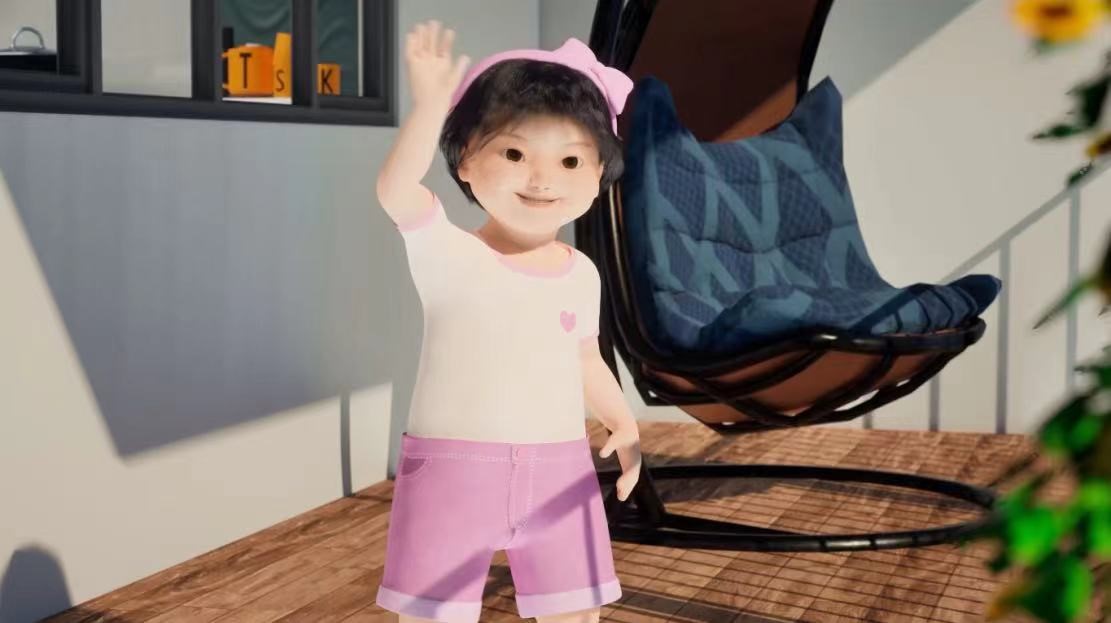AI, between apps that translate children’s crying and humanoid children who feel emotions

Artificial intelligence (AI) never stops giving us new things. Among the latest, an app that claims to be able to translate children's cries and a humanoid girl named Tong Tong who, according to her 'parents', is capable of feeling emotions. All the details
Interpreting the cries of a newborn is not always easy and neither is it easy to fill loneliness. So artificial intelligence (AI) – in its own way – tries to make a contribution. A recent app claims to be able to understand and translate children's cries and Tong Tong, a humanoid little girl, offers to keep them company.
THE APP THAT TRANSLATES CHILDREN'S CRYING
It's called Nanni AI and defines itself as "The most advanced AI translator for crying babies!". It is an app supported by the World Health Organization (WHO), the Massachusetts Institute of Technology (MIT), Google, McGill University and the Canadian AI institute Mila .
“Crying is your baby's first and only language and Nanni AI is here to help you understand it!”. It's the slogan on their site , where there are also reviews from enthusiastic parents recommending the app.
Nanni AI, in addition to translating the cries of the little ones, dispenses immediate advice to calm them, sends a notification of any unusual cries and allows users to leave photos and notes for themselves and for healthcare workers. It also announces that a function to predict and optimize your baby's sleep is also coming.
TONG TONG, A HUMANOID GIRL
If Nanni AI promises to take care of reassuring newborns, artificial intelligence has gone much further and in China, where there are fewer and fewer real children ( as in the rest of the world ), it generates virtual ones.
Tong Tong, which means 'little girl', is about 3-4 years old and last January was publicly presented at the Frontiers of General Artificial Intelligence Technology Exhibition in Beijing by an award-winning Chinese scientist who left the United States to return to homeland.
WHAT HE CAN DO
“Science fiction has become reality,” writes South China Morning Post (SCMP). Developed by Chinese scientists, Tong Tong is able to assign itself tasks, learn independently and explore its surroundings.
During her presentation, the article says, the audience could interact with her and if she was programmed to keep the place she was in tidy, she would, for example, fix a crooked frame on her own. If this was too high, he found a stool to reach it and straighten it without the help of a human. Or, if someone had spilled milk, she would have found a towel and cleaned it up herself.
In addition to the company she can provide for elderly and lonely people – the phenomenon of loneliness is already common to many countries and Asia is among the most affected -, the humanoid girl also has the potential to find applications in home automation, healthcare and education .
NOT JUST HOUSEHOLD CHARE
But Tong Tong isn't just a helpful helper, according to experts . The Beijing Institute of General Artificial Intelligence (Bigai) says it “has its joy, its anger and its pain.” In short, she also has a "heart" and has feelings like a real child and as such, for her creators, through exploration and human interaction, she can continuously improve her skills, her knowledge and her values.
They also say that she is "an AI capable of discerning, progressively and through learning, good and evil" and that she "learns the concept of 'common sense' thanks to interaction with humans".
#Curiosities #prototype #AI #TongTong : The Future of Companionship, in a world without children, comes from China. And a humanoid prototype designed to provide companionship to the elderly or childless parents TongTong is a virtual "little girl" designed by Bigai (Beijing… pic.twitter.com/mgFOzUDE75
— Maker Faire Rome – The European Edition (@MakerFaireRome) April 23, 2024
IN WHICH DIRECTION TO MAKE AI PROGRESS
As OpenAI and Meta learned, the real quantum leap that AI needs to make lies in reasoning and planning, two human characteristics that would allow AI to complete sequences of related tasks and predict the consequences of their actions.
Even for a researcher quoted by the SCMP , “a fundamental aspect of general intelligence is having a physical and social common sense similar to that of human beings. Guided by its values, an AI entity should not only be able to complete an infinite series of tasks, but should also define new ones autonomously.”
THE TONG TEST
To this end, the Tong Test was also presented at the large AI fair in Beijing which, unlike traditional AI tests – which focus on human identification, task orientation and tests in virtual environments – , evaluates five dimensions: vision, language, cognition, movement and learning.
As explained by the director of Bigai and world-renowned scholar in the field of AI Zhu Songchun, "it also includes a system of values that goes from physiological and survival needs to emotional and social values, up to group values" and for the site of the institute, thanks to almost 100 specialized tasks and more than 50 general tasks, offers a comprehensive test regime for the development of general artificial intelligence.
This is a machine translation from Italian language of a post published on Start Magazine at the URL https://www.startmag.it/innovazione/bambina-intelligenza-artificiale/ on Wed, 01 May 2024 05:55:50 +0000.
